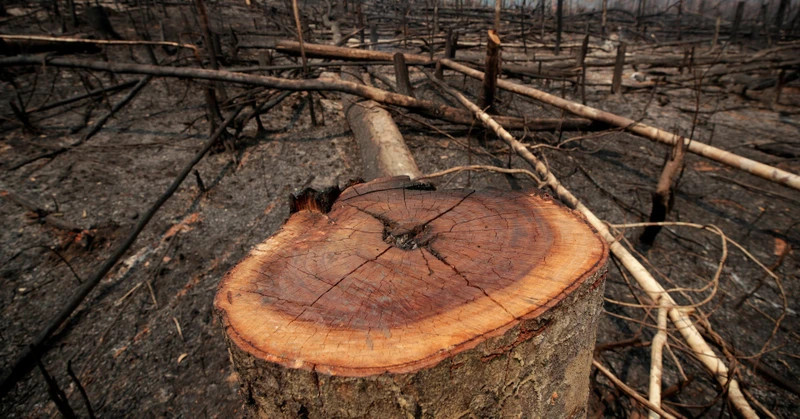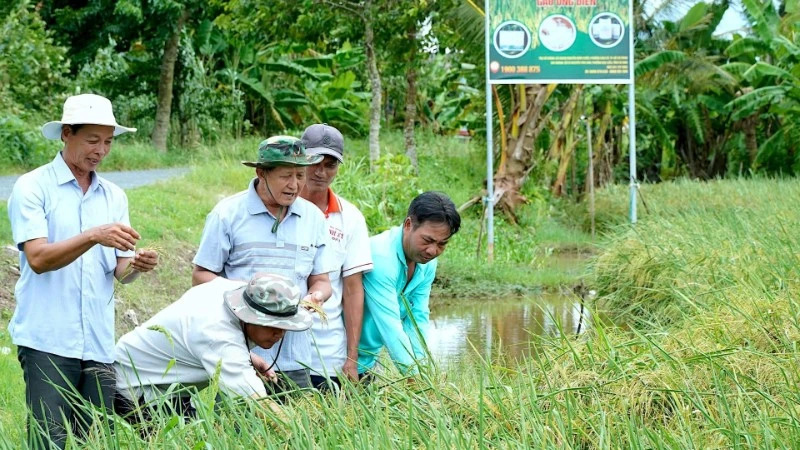Floods claimed many lives and caused heavy damage to economic activities and agricultural production in East Africa and some areas of the Arabian Peninsula. Powerful heat waves also cover large areas of Asia, disrupting daily life and seriously threatening human health.
The extreme weather events occurring at the end of April show that the world continues to be vulnerable to climate hazards. El Nino and the Indian Ocean dipole phenomenon are the causes of extreme weather patterns.
However, according to experts from the World Meteorological Organisation (WMO), excess energy in the atmosphere and oceans due to greenhouse gas emissions from human activities also contributes to increasing severe weather patterns.
At the 80th session of the Economic and Social Commission for Asia-Pacific, WMO Deputy Secretary-General Ko Barrett warned that climate change is exacerbating the frequency and intensity of these phenomena, negatively impacting socio-economic activities and threatening the living environment and human lives.
Barrett emphasised that extreme weather events from the beginning of the year in Asia are continuing the trend outlined in the WMO’s State of the Climate in Asia 2023 report. The report shows that Asia will remain the region most affected by climate disasters in 2023.
Storms and floods are causing the highest casualties and economic losses, while the impact of heat, which Barrett compared to a “silent killer”, is becoming more and more serious. Heat-related deaths are often underreported, so statistics on deaths and economic losses related to reduced labour productivity, crop failures, and lack of electricity and water are not reflected accurately.
The latest report of the Intergovernmental Panel on Climate Change (IPCC) concluded that extreme heat waves are increasing in Asia, while cold spells are decreasing, and this trend will continue in the coming decades.
IPCC predicts that by 2060, the heat wave trend will rise by two waves per year and the heat wave period will increase by 12-18 days. According to statistics from the Indian Meteorological Department, the world’s most populous country suffers from unusual heat waves in most large territories, except the northeast, western Himalayas, southwest peninsula and the western sea.
Meanwhile, people in Vietnam, Cambodia, Laos, Thailand, and Bangladesh are also suffering from heat waves of more than 40C. In particular, Myanmar recorded temperatures up to 46C, disrupting economic and social activities and forcing school closures to ensure students’ health. Since the beginning of the year, the Thai Ministry of Health has recorded 30 heat-related deaths, compared to a total of 37 deaths due to heat stroke in the whole of 2023.
In contrast to Southeast Asia, the United Arab Emirates (UAE), which has a hot, arid desert climate and very low annual rainfall, struggles to cope with floods due to unusually heavy rains. The UAE National Meteorological Centre has recorded the heaviest rainfall in the past 75 years.
Meanwhile, a storm raged in Oman, causing flash floods and killing 17 people. In the East Africa region, Tanzania recorded at least 155 deaths and 230 injuries due to flash floods in recent weeks.
Environmental experts explain that extreme weather phenomena such as heat waves, storms, floods, and droughts occurring with increasing intensity and frequency mainly originate from climate change, caused by human activities that damage the environment.
The United Nations has repeatedly warned that climate change is a danger to humanity, which can plunge human future into poverty and a series of serious consequences. Therefore, the organisation always urges all people and all countries to join hands to protect humanity’s living environment.
















